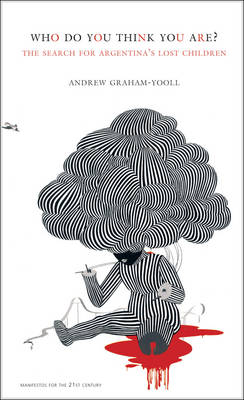Manifesto for the 21st Century. In Collabroration with Index Censorship
1 total work
"Who Do You Think You Are?" is a powerful and startling look at our ideas of human identity as seen through the example of a generation of lost children born under Argentina's military dictatorship from 1976 to 1983. As Andrew Graham-Yooll explains, the killings during the dictatorship were enacted under a particularly chilling and conniving plan: A group of senior military officers drew up a policy of disappearing guerrilla rivals and subsequently forcing the adoption of their orphaned children into the supposedly more suitable families of the ruling class. The goal of this practice was annihilation and cultural domination, the cancellation of unwanted and threatening family identities. Equally shocking, Graham-Yooll argues, is that this practice of murder and adoption was carried out in a country with one of the highest levels of education and the largest middle class in Latin America at the time. Though we may want to believe that such atrocities cannot happen again in enlightened societies, the Argentine example argues otherwise. With "Who Do You Think You Are?"
, Graham-Yooll weaves together ideas from literary texts and studies of childhood in order to define what exactly we mean when we speak of identity - who we are, where we come from, and where we belong.
, Graham-Yooll weaves together ideas from literary texts and studies of childhood in order to define what exactly we mean when we speak of identity - who we are, where we come from, and where we belong.
